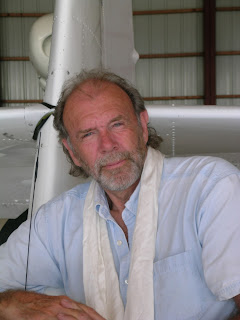I believe looking at the cover of the movie Gran Torino; you get the impression of a very serious film, maybe even boring as well. In fact that's not right at all. Clint Eastwood, who's playing the main character in Gran Torino, as the old veteran from the war in Korea, is playing his role as a genius. There are a lot of good actors and probably others suited fo

r this part, but not many could have done this particular role as well as Eastwood did it.
The story starts when Walt Kowalski’s (Clint Eastwood) wife dies and we get to see the ceremony and the dinner afterwards. Already from the start we get to see that Mr. Kowalski is a lonely man, he's in sorrow and he would very much be left alone. However what Kowalski were about to notice was that he was getting some new neighbors, whose Hmong people, which is a people from the mountains. In this part of the movie I really feel that we get the idea of which challenges immigrants meet when they move to a new place. From Mr. Kowalski they receive nothing more than despite and it actually shows how prejudice and intolerable people in general can be towards each other, even though they don't even know one another.
Walt Kowalski is presented as an old war vet from Korea, what many would characterize as a stereotype of old American hotheads. In addition to being a war vet Walt also used to work at the old Ford factory, building cars including the 1972 Ford Gran Torino, which he became a proud owner of. However one night the boy next-door tried to steal his precious diamond and afterwards got caught. This lead to a lot of anger from Mr. Kowalski, but they agreed that Thao, the neighbor’s son would work for Walt to pay for his actions. After a while when Thao has worked for him quite a while, Kowalski starts to see that the boy actually is a decent boy despite his bad behavior earlier. If you ask me, this is probably the biggest turning point in the movie, not just because he starts to become nicer, but because Walt finally starts to accept another people with a different racial background, and also he becomes soft when he lets Thao become a part of his life.
Further on Walt and Thao becomes great friends and the neighbors are getting along perfect, except for a group of Hmong boys that controls most of the Hmong people in the area. Throughout the movie Walt tries his best to protect Thao from the gang and he tries to clear out the gang when he goes out to reform his neighborhood. In the mov

ie I feel that they have drawn a clear line between the black people, the Hmong people and the Americans in the neighborhood. Also in the movie we get to hear the old grandma from the Hmong's house say that she wishes Kowalski would move since all the other Americans have disappeared from the streets in the area. I believe this really shows how people are shown in stereotypes in movies from Hollywood.
I really liked the film. I thought it was both funny and serious and really enjoyed Clint Eastwood in the part as Walt Kowalski. He is truly a good actor, with that little extra spark. I don't think he's the type of actor to play many different parts, but I believe that he chooses the parts that he's really suited for and it seems to me that he's playing himself all along. A great movie which I recommend.
I have posted a link to the tralier:
http://www.youtube.com/watch?v=c8Z2n534q1Q












